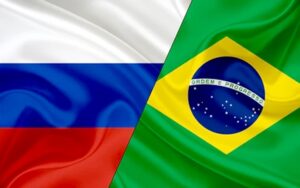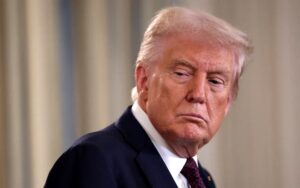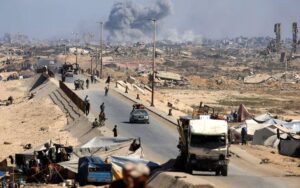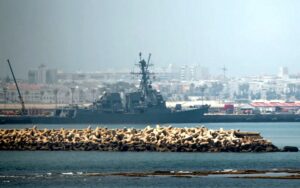MEMO: Brazil and Russia: From BRICS partnership to cooperation between Moscow and São Paulo

The 21st century witnessed a reversal in the post-bipolar world order, as the United States emerged victorious from the end of the Cold War, establishing neoliberal globalization, but failing to secure hegemony in the global economic struggle, with the rise of several emerging powers seeking new models of development and partnership, far removed from traditional hegemony (the US and the West), one of the objectives of the BRICS group (Brazil, Russia, India, China, and South Africa, in the initial group that gave its name, later expanded) has been the rapid increase in the number of member states in recent years.
In this sense, among these transformations is the emergence of cooperation between Brazil and Russia, through a series of initiatives also known as paradiplomacy.
A good definition of this concept is: “International relations conducted by subnational entities, such as cities, states, provinces, or regions, with the aim of promoting their own interests abroad without the need for direct intervention by the central government or traditional nation-led diplomacy… This phenomenon has gained prominence in recent decades, as globalization and interconnectivity have increased the capacity and need for these subnational entities to participate directly in international affairs… Paradiplomacy can encompass a wide range of areas, including trade, investment, environmental cooperation, culture, education, and tourism… For example, a city may establish relationships with international partners to attract foreign investment or promote local tourism. Similarly, states or regions may participate in global networks to combat climate change, share best practices in resource management, or promote educational and cultural exchanges”.
In the first half of 2025, the cities of São Paulo and Moscow signed a Memorandum of Understanding (MoU) focused on technical and institutional cooperation in urban mobility.
In August of this year, the São Paulo City Hall sent a technical delegation to the International Transport Summit, held in Moscow from August 21st to 25th.
The São Paulo City Hall was represented by the Municipal Secretariats of International Relations and Urban Mobility and Transport.
During the meeting, representatives of the São Paulo municipal government participated in the opening ceremony, witnessed the signing of the joint declaration of adherence to the UrbanTransportData project, and participated in technical meetings on strategic topics such as sustainable transportation, digitalization, innovation, and traffic safety.
The program also included technical visits to leading institutions such as the Moscow Situation Center, the Technopolis Special Economic Zone, the Moscow Transport Museum, and the Northern River Terminal.
São Paulo’s Deputy Secretary of Urban Mobility and Transportation, Rafael Toniato Mangerona, who was present at the event, stated that he sees Moscow as an important partner in the development of transportation systems.
He explained that the focus in the next phase will be to promote the development and use of electric and biogas-powered buses as a practical alternative to petroleum-based fuels, improving the urban environment and the health of citizens in a city like São Paulo, which suffers from heavy traffic pollution.
The idea of developing sustainable transportation services and mechanisms, announced during the International Transport Summit in Moscow, appears to be more than just a technical or environmental project, but carries broader political and economic dimensions, even more important considering that both countries are founding members of the BRICS group.
The Brazilian representative’s speech wasn’t without obvious political implications; he harshly criticized Western sanctions against Russia, arguing that they hinder technology transfer and impede opportunities for international cooperation.
This position reveals a strategic rapprochement between Brazil and Russia, based on the idea that development shouldn’t be held hostage by geopolitical tensions.
São Paulo’s approach also reflects Brazil’s openness to multiple partners outside the Western context, strengthening its position as an emerging power seeking to diversify its options.
This step reflects Brazil’s serious intentions to follow the global trend toward smart cities and sustainable development, where the environmental dimension is integrated with modern technologies to build more efficient transportation systems.
The project isn’t limited to investment; it also includes the exchange of technology and expertise, with a country like Russia, which has expertise in urban transportation systems and railways, Brazil, in turn, seeks to further develop its capabilities in the area of clean energy and bio-based alternatives through bilateral cooperation aimed at:
- Develop an integrated infrastructure for electric buses.
- Integrate electricity and biogas as part of the urban energy system.
- Using intelligent digital systems to manage transportation and reduce congestion.
- Leveraging technology as a tool to develop the business environment, increase the capacity for practical partnerships, and even overcome political constraints.
The Brazil-Russia technical cooperation has expertise in transportation areas, ranging from subway systems and high-speed trains to digital traffic management solutions.
Brazil also has significant experience in bioenergy, pioneering the use of ethanol and biogas as alternatives to petroleum-based fuels.
Therefore, when the two parties join forces on a joint project, the door opens for the exchange of expertise and the creation of new transportation models that can later be exported to other cities in the Global South.
This isn’t limited to direct economic benefits, but also carries an important symbolic value: namely, cooperation between developing and emerging countries is capable of producing knowledge and solutions that are no less valuable than those coming from the West.
It’s worth noting that São Paulo’s commitment to the BRICS—through cooperation with Moscow, the capital of Russia—goes beyond domestic political alliances, limited by rhetoric and subordination to the United States and its projection of power over Brazil.
If and in the event that structural projects move forward, such as the Moscow urban and metropolitan river axis, the impact on the reality of millions of people is immediate.
São Paulo also boasts rivers suitable for transportation projects, such as the Tietê and Pinheiros rivers—if depolluted and made navigable—in addition to the interconnection with the Billings and Guarapiranga dams.
São Paulo’s waterway plan envisions a 148-km stretch of waterways across 40 ecoports, integrating rivers, streams, and dams, and a projected investment value of R$8.5 billion.
Clearly, a project of this magnitude won’t emerge from the Western financial accumulation regime, but rather from the joint investments of the BRICS New Development Bank and its more than USD 137 billion already invested in structural projects addressing the climate emergency and sustainability.
If this project develops into an exchange between São Paulo and Moscow, the impact will be immeasurable, on a scale of tens of millions.
Projects of this magnitude change daily life and the perception of international politics as applied in the real world.
The original article here








